- Published by:
- Department of Education
- Date:
- 7 Dec 2023
The Early Childhood Update e-newsletter is sent to early childhood teachers and workers, but is open to anyone interested in best practice in early years education and evidence-based teaching approaches. Subscribe here to receive the e-newsletter(opens in a new window).
Reflections on 2023 and a look at the year to come
Thank you for your expertise, passion and commitment – you make a big difference in the lives of children and families.
Dear colleagues
This is our final edition of Early Childhood Update for 2023, as we get ready to farewell what’s been an exciting and very busy year for the early childhood education sector.
On behalf of the department, I’d like to take this opportunity to thank you and your colleagues for your work this year. The skill you bring every day, combined with your commitment to your work, is central not only to children’s wellbeing, learning and development, but also to making our communities more supportive, positive and vibrant places.
This year has also been notable for the progress we have made together with the Best Start, Best Life reforms.
In this edition of Early Childhood Update, we share the results of the extensive consultation process conducted to inform how we design and implement the next stages of the reforms.
The release of the ‘Best Start, Best Life Transforming Early Childhood Education Together: what we heard, what we're doing’ report is a significant milestone, and I would like to thank the more than 5,000 Victorians who contributed their feedback – this includes families, early childhood educators and teachers, providers, peak bodies and experts.
This valuable advice has informed the new workforce and infrastructure strategies. The Best Start, Best Life Workforce Strategy: Continuing to value and grow the kindergarten workforce outlines how we will work with the sector to grow and support the workforce. The Building Blocks: The Victorian Government’s Best Start, Best Life kindergarten infrastructure strategy outlines how we plan to create spaces for learning, expand existing services and drive the growth required to deliver the reforms.
We are very excited to share these plans with you now, as we look ahead to the important work to follow.
Three-Year-Old Kindergarten: full-steam ahead
Three-Year-Old Kindergarten went from strength to strength in 2023: flexible hours have been successfully rolled out across the state with services offering between 5 and 15 hours of a weekly program.
While some services are already offering 15 hours of Three-Year-Old Kindergarten, we are seeing an exciting and steady increase towards 15 hours occurring year on year for the remainder of services. Our collective efforts mean we are on track to reach 15 hours statewide by 2029.
Reflecting on the Victorian Early Years awards
The Victorian Early Years Awards gave a wonderful opportunity to celebrate the people who work in early childhood education and care, and to recognise the significant difference this workforce makes to the lives of children and families across the state.
It was a fantastic occasion that highlighted once again the exceptional work you do, and as we approach the end of another big year, I can only reiterate my words on the night, in congratulating all the nominees and winners. You can read all about the awards later in this edition.
Continuing strong participation and enhancing practice
I‘m proud that together, we have maintained the high rates of kindergarten participation including for Aboriginal and Torres Strait Islander children in both Three- and Four-Year-Old Kindergarten programs. Equally, the high participation rates of refugee children and children experiencing vulnerability are a reflection of the supports you’ve put in place to be more responsive to children and families’ diverse needs. This includes the continued implementation of School Readiness Funding, the strong take-up of Early Start Kindergarten and engagement with Koorie Kids Shine.
More recently, we’ve announced that we’ll have 11 new services delivering a bilingual kindergarten program from next year. I’d like to congratulate these services, and I look forward to hearing more about their programs in action in 2024.
For your teams, 2023 has been an opportunity to join more than 2,200 colleagues for the inaugural Best Start, Best Life Education Leaders Conference, supporting educational leaders and practitioners.
This year’s launch of the Coach and Mentor Training Program aimed to provide experienced teachers and educators an opportunity to build and further develop their coaching and mentoring skills. Thanks to the support from the sector, the majority of participants who completed the program came from leadership roles and have worked for 10 or more years in a kindergarten program. This is a great step forward in enabling important opportunities for experienced teachers and educators to progress their careers.
I wish you all the best for the festive season and hope you take the chance to reflect on your exceptional achievements this year and enjoy an extremely well-earned break. My colleagues in the department and I look forward to working with you to support the delivery of high-quality early childhood education in 2024.
Jenny Atta
Secretary
Department of Education
Best Start, Best Life consultation report released
Find out what our extensive consultation process has told us about the key themes of the $14 billion reforms.
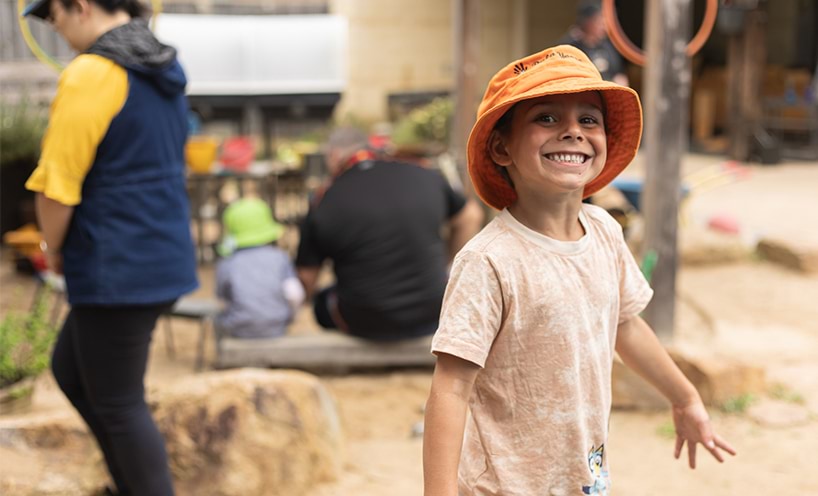
In a major milestone for our Best Start, Best Life reforms, the Victorian Government has released a report on our Best Start, Best Life reform consultations.
When the government announced the Best Start, Best Life reforms and kindergarten expansion, we committed to consulting widely with the sector.
The department has conducted more than 100 consultation sessions across the state, capturing feedback from more than 5,000 Victorian early childhood teachers and educators, service providers, peak bodies, unions, tertiary education providers and families.
Thank you to everyone who shared their feedback with us through the consultation sessions, as well as in focus groups, forums and the public Engage Victoria survey.
We encourage services to share the report with their staff and networks.
Consultation findings
The Best Start, Best Life reforms consultation process has helped inform and shape government decision-making about the reforms.
We heard that the success of our Best Start, Best Life reforms depends on delivering these main elements:
- meeting the needs of children, families and communities
- valuing and growing the workforce
- making spaces for learning
- supporting the sector through change.
Next steps
The consultation report outlines the actions we are taking to respond to your feedback across each of the elements and themes identified.
We will continue to engage with partners and stakeholders as the reforms are rolled out, and we encourage everyone to keep sharing their feedback with us throughout this process.
Find out more
For more information, refer to Best Start, Best Life Transforming Early Childhood Education Together: what we heard, what we're doing.
New program to strengthen tertiary partnerships
Supporting more students to study and become early childhood teachers and educators.
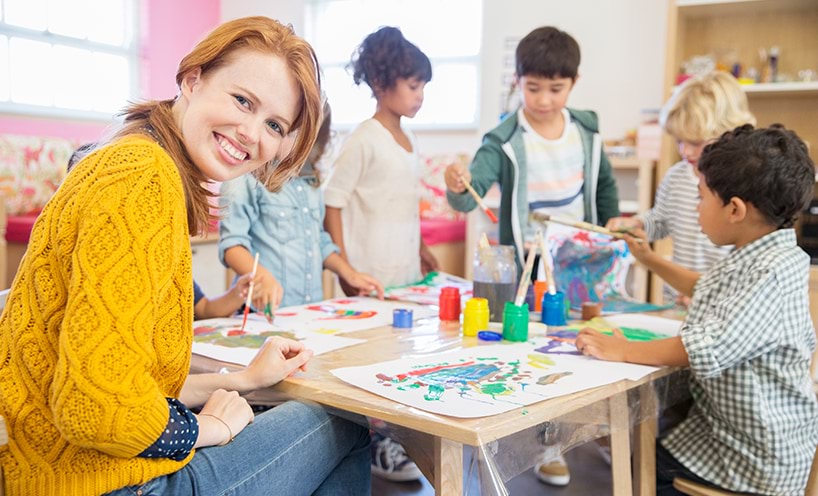
The department has developed a new Best Start, Best Life Workforce Strategy focused on attracting, supporting and retaining the early childhood workforce Victorian children and their families need.
As part of the refreshed strategy, we are launching the new Early Childhood Tertiary Partnerships (ECTP) program.
About the Early Childhood Tertiary Partnerships program
The ECTP program builds on the existing Innovative Initial Teacher Education (IITE) program, which helps diploma-qualified educators to complete a bachelor’s degree through a compressed program of study, with enhanced financial and extra supports.
From 2024, the ECTP program will support more students to study and become early childhood teachers (ECTs) and educators.
The program will support students to undertake the following qualifications at 10 selected providers, including universities, TAFEs and Registered Training Organisations (RTOs):
- Certificate III in Early Childhood Education and Care
- Diploma of Early Childhood Education and Care
- Bachelor of Early Childhood Education
- Graduate Diploma in Early Childhood Education.
Study time will vary depending on qualification level and model of delivery.
Prospective students will be able to access a range of tailored supports, depending on their program, including:
- financial supports
- academic and placement mentoring
- relocation supports for regional placements
- culturally responsive professional resources.
Find out more
For more information, refer to the Early Childhood Tertiary Partnerships (ECTP) program.
New early learning and childcare centre locations and sites confirmed
The Victorian Government has announced sites for the 10 centres that will open in 2026, along with the locations of the remaining 20 centres to open by 2028.
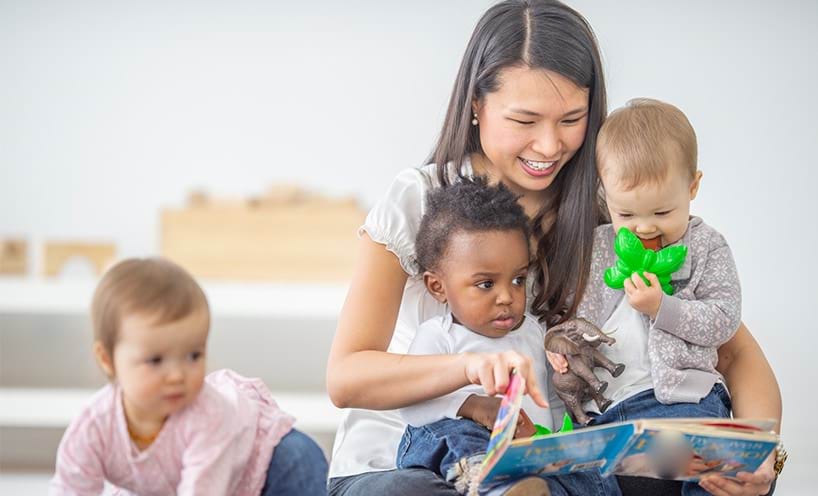
The Victorian Government has released more information about the 50 government-owned and operated early learning and childcare centres (ELCCs) due to open across Victoria between 2025 and 2028.
Having previously announced where 30 of these new ELCCs will be based, in November 2023 the government announced the locations for the 20 additional centres:
- Mickleham
- Wollert
- Craigieburn
- Woori Yallock
- Maffra and District
- Cohuna
- Warrnambool
- Drouin
- Avoca
- Wonthaggi – Inverloch
- Nicholson and District
- Newborough
- Churchill
- Casterton
- Roxburgh Park
- Cranbourne
- Alexandra
- Hamilton
- Bendigo South
- Melton West.
A complete list of locations, including already announced locations, is available at the Victorian School Building Authority website.
The government has also announced that 10 centres will open in 2026 in:
- Clunes at Clunes Primary School
- Frankston at McClelland Secondary College
- Hallam at Hallam Primary School
- Kings Park at Kings Park Primary School
- Loddon at Wedderburn College
- Noble Park at Harrisfield Primary School
- Numurkah at Numurkah Primary School
- Portland at Portland South Primary School
- Shepparton at Wilmot Road Primary School
- Werribee at Wyndham Vale Park Primary School.
The first 4 centres will open in 2025 in:
- Sunshine at Sunshine Primary School
- Fawkner at Moomba Park Primary School
- Eaglehawk at Eaglehawk North Primary School
- Murtoa at Murtoa College.
About the new early learning and childcare centres
These government-owned and run centres will provide childcare, Three- and Four-Year-Old Kindergarten and, eventually, transition to include Pre-Prep.
In some cases, the centres may be co-located with services like maternal and child health services and playgroups, making it easier for families in the local area to access affordable childcare.
Where possible, the centres will be located alongside government schools, hospitals, TAFEs and major employers to create convenient access for working parents.
We are excited about the opportunities these centres will provide for local children and the broader community. The remaining 35 centres will be open by 2027, with all 50 open by 2028.
This is part of the Victorian Government's latest kindergarten infrastructure strategy, which invests billions to create spaces for learning, expand existing services and deliver high-quality kindergarten in the areas that need it most.
Find out more
For more information, refer to the Victorian School Building Authority.
Celebrating the 18th annual Victorian Early Years Awards
We recognised 9 early childhood professionals and initiatives for their outstanding work to improve outcomes for young children.
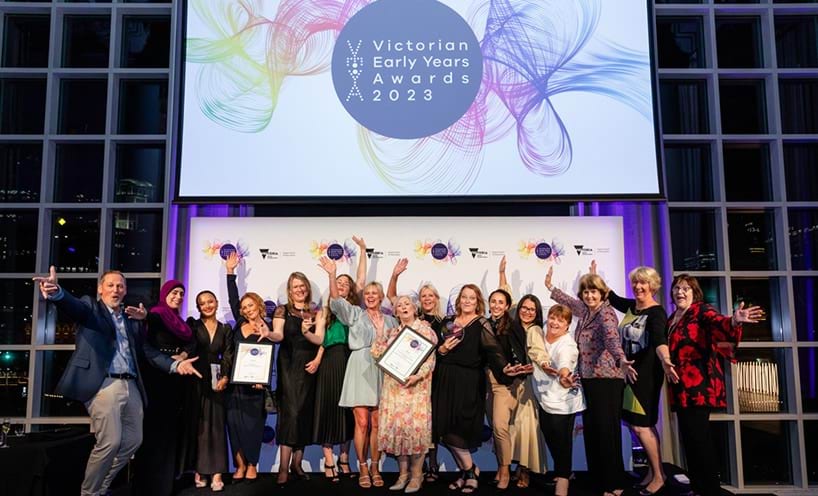
With the permission of family, the below information includes the names of Aboriginal people who have passed.
At an event on Thursday 9 November 2023, the Minister for Children, the Hon Lizzie Blandthorn MP, announced the winners of this year’s Victorian Early Years Awards.
This year’s event had even more to celebrate than usual, with the addition of 2 new award categories.
The importance of Aboriginal inclusion and perspectives was recognised through a newly dedicated award commemorating the life and legacy of Yorta Yorta, Wiradjuri woman Aunty Rose Bamblett (1947–2022).
The inaugural Aunty Rose Bamblett Koorie Early Years Legacy Award recognised Yirram Burron and Perridak Burron Early Learning, Ballarat and District Aboriginal Co-operative for a project that has had a profound impact in the community.
The award recognises their tremendous efforts in creating a culturally safe environment that delivers educational programs based on Aboriginal perspectives. These programs have nurtured a learning environment that enhances children’s love for land and community.
The second new award was Educator of the Year, which went to Sue Bullock from Kinglake Ranges Children’s Centre.
Sue implemented reforms raising the service's quality rating, as well as steering the organisational culture to emphasise trust, respect and empathy.
Praising our winners
Across each of the 9 award categories, the winners exemplify the vital work happening in the sector every day to support the critical early years of children’s lifelong education journeys.
Pippa Procter, executive director, Early Learning Practice and Participation, said it was a wonderful occasion to recognise early childhood services and staff for their hard work.
‘It was great to celebrate the hard work of some of the amazing professionals in our sector – they make a huge difference to the lives of children and their families right across our state,’ Pippa said.
Individual honours
Rachael Gemmill from Glen Education Glover Street Kindergarten was one of the individual award winners, taking out the Early Childhood Teacher of the Year award.
This year’s Minister’s Award went to Northern Schools Early Years Cluster Inc for supporting children’s transitions to school.
Award recipients
This year’s award recipients in the remaining categories were:
- Improving Access and Participation in Early Learning: Fast-tracking 15 hours of Three-Year-Old Kindergarten for children at risk – Northern Schools Early Years Cluster Inc
- Supporting Parents to Build their Capacity and Confidence: The HoPES team, strengthening the Early Years, Tweddle Child and Family Health Service
- Creating Collaborative Community Partnerships: Darebin Best Start Aboriginal Reference Group, Darebin City Council
- Promoting Children’s Health and Wellbeing: By Five Paediatric Project, By Five
- Continuity of Early Learning: Greater Dandenong Early Learning Alliance, Keysborough Primary School
- The Emeritus Professor Collette Tayler Excellence in Educational Leadership award: Early Childhood Education Team, Early Childhood Management Services Inc.
The winners in each category received a grant of $15,000 for professional development or to support their nominated initiative.
Find out more
For the full details of this year’s winners and finalists, refer to Winners of the 2023 Victorian Early Years Awards.
For further queries, please contact the department by email: early.years.awards@education.vic.gov.au
Getting prepared for summer
As summer has started, please ensure that your service is monitoring any extreme weather events.
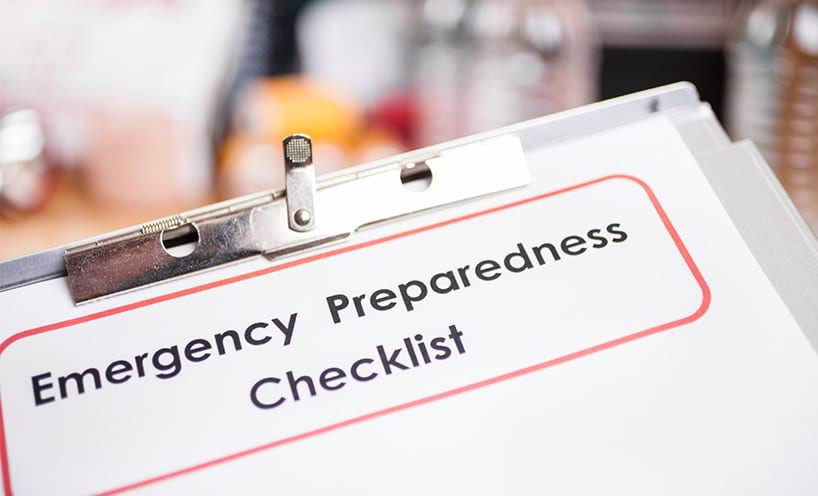
The Bureau of Meteorology is forecasting much warmer and drier conditions in summer, which could lead to an early start to the fire season in some parts of Victoria. Recent years of wetter conditions means there is plenty of fuel available to burn once it dries out. Extreme heat and heatwaves are considered more likely this summer.
Preparedness and Emergency Management Plans
All early childhood services must have emergency and evacuation policies and procedures. Parents and carers should also be familiar with your arrangements in case of an emergency.
In addition, services located in areas at risk of bushfires or grassfires, including those on the department’s Bushfire At-Risk Register (BARR) or Category 4 list, must have an Emergency Management Plan (EMP) as part of their service’s policies and procedures that includes details of how they will manage these issues. Family day care services (FDC) must have an EMP for their educators.
When preparing for the summer season, review your EMP and remember to update key sections, including contact details.
Services should ensure all service contact details are up to date for the department’s records.
- National Quality Framework (NQA) services can update their details on the NQA IT System portal.
- Limited hours and occasional care services must:
- complete AS10 Notification of change to information about an approved children’s service
- send the form to the department by email: licensed.childrens.services@education.vic.gov.au
Approved providers of long day care (LDC) or Out of School Hours (OSHC) services listed on the Bushfire At Risk Register (BARR) or Category 4 must ensure that:
- the service does not operate on a forecast Catastrophic Fire Danger Rating (FDR) day in the area or district where the service is located.
- the service’s emergency and evacuation policies include an EMP to manage bushfire and grass fire related risks.
Approved providers of FDC services must have an EMP for their services and FDC educators and ensure their FDC educators who reside in areas or districts with a forecast Catastrophic Fire Danger Rating (FDR) day do not operate their service.
A robust EMP that considers all the hazards your site faces (such as thunderstorms, floods, heatwaves, intruders) will help keep your children, staff, and community safe.
Services should be aware of fire danger, weather forecasts and warnings in their local area.
If you are organising excursions or activities offsite, be sure to monitor the local conditions or risks, so that you can cancel, modify or relocate at any time if needed.
You can prepare your service for the high-risk weather season by clearing vegetation near buildings, updating your emergency kit, and communicating with parents and the local community what your plans are in an emergency.
The department supports early childhood services during an emergency. Trained staff are available to help respond to emergencies. These staff work closely with emergency services to ensure the safety of early childhood communities.
In the event of an emergency
Services should contact 000 as required and enact their EMP.
Additional information can also be sought to support decision making during emergencies through the department as well as the VicEmergency app.
Please report any emergency events to the department as early as it safe to do so. For more information, refer to Notifying the early childhood Regulatory Authority about incidents and complaints.
It is important for services to report the impacts in an emergency early, to help the department to understand the scale and severity of an event, and consider what support options we may be able to provide.
VicEmergency app and emergency warnings
Ahead of summer and the bushfire season, it’s important for everyone to understand the three warning levels that may be issued in an emergency and the action they need to take.
Warnings are the same for bushfires, floods, storms and extreme heat, and come with an action statement that will tell you exactly what to do in an emergency.
Download the VicEmergency app from your app store to learn more and receive emergency warnings.
Find out more
For more information, refer to:
For further enquiries, contact the Security and Emergency Management Division by email: emergency.management@education.vic.gov.au
Victorian Early Years Learning and Development Framework revision
Attend a focus group and contribute to the framework revision. Registration closes 15 December 2023.
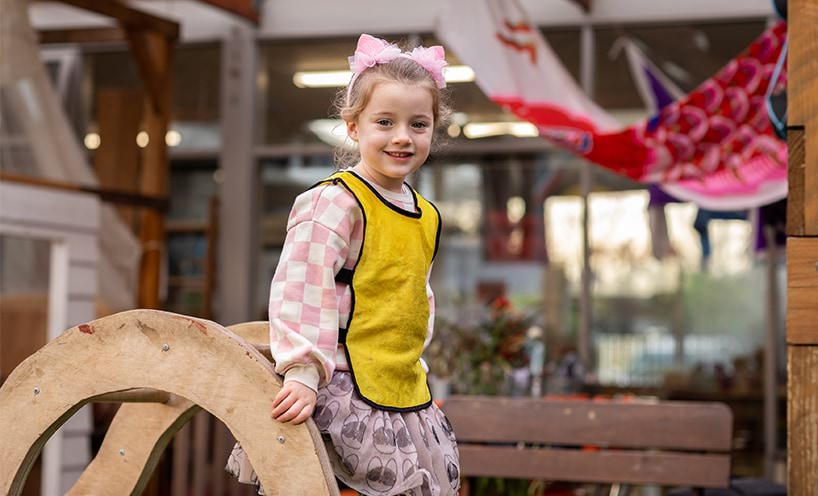
Focus groups are filling up fast and the Victorian Curriculum and Assessment Authority (VCAA) wants to hear from you. Register your interest now to participate in an online focus group running in Term 1, 2024, to have your say and inform the revision of the Victorian Early Years Learning and Development Framework (VEYLDF).
The VCAA, in partnership with the department and stakeholders, is leading the revision work and invites early childhood professionals to contribute their ideas.
The VEYLDF Revision will maintain Victoria’s distinctive focus on play-based learning up to the age of 8 years old, and the continuity of learning between early childhood services and schools.
The revision aims to enhance the existing content of the VEYLDF and make sure that it continues to reflect current research and best practice.
It will support all Victorian early childhood professionals in their work with children and families, especially in light of the significant reforms in the sector.
Calling all teachers and educators
If you would like to participate in one of the VCAA’s online focus groups running in Term 1, 2024, please register your interest here before Friday 15 December 2023. This is an opportunity that is available to you, and it is completely voluntary.
The VCAA are also calling for participation of professionals working with children from birth to 3 years of age, and Foundation to Grade 2 teachers, so please share this opportunity with your colleagues.
Where your participation is supported by staffing backfill, services can apply for backfill payment contribution by email: veyldf@education.vic.gov.au
Find out more
For more information, refer to the VEYLDF Revision and be sure to sign up for the VCAA Early Years Alert.
For further enquiries, contact the Early Years Unit at VCAA by email: veyldf@education.vic.gov.au
Early Learning Leadership Forums
Thank you to early childhood leaders who participated in 2023 Early Learning Leadership Forums. We’ll be back in 2024.
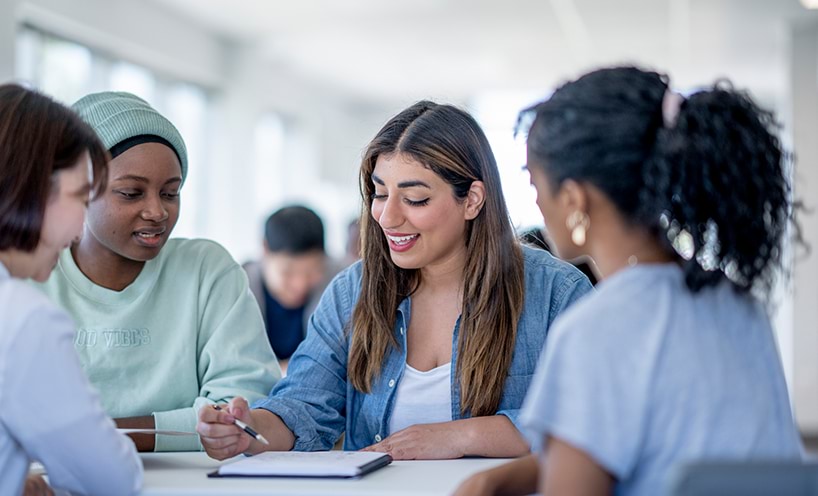
Following the success of this year’s Early Learning Leadership Forums, the department is already planning the program for next year’s forums across the state.
Held in each of our 17 department areas, Early Learning Leadership Forums provide a platform for leaders in the sector to connect with others locally and engage with the department, as we share the latest updates on early childhood reforms.
In Term 1, 2023, early childhood leaders came together to reflect on 'Building quality by supporting workforce wellbeing'. Dr Tamara Cumming and Professor Sandie Wong guided sessions that prompted participants to consider the links between workforce wellbeing and quality.
In Term 3, leaders reflected on 'Creating workplaces that foster professional growth'. They also continued discussions from the session in Term 1 and heard from Sir Kevan Collins about strategies and behaviours early childhood leaders can adopt to encourage professional growth in their teams.
Attendees at this year’s sessions said that the 2023 Early Learning Leadership Forums were valuable to them as early childhood leaders.
Looking ahead to 2024
In 2024, the department areas will invite early childhood leaders back together for another 2 sessions, in early Term 2 and late Term 3.
Among the range of leaders welcome to attend, we will invite:
- service directors and coordinators
- committee of management members
- executive teams
- area managers.
We look forward to providing opportunities for leaders to continue conversations and collaborate in 2024.
Find out more
For more information about events in your department area, refer to your local Early Childhood Improvement Branch.
For further enquiries, contact the department by email: ec.forums.networks@education.vic.gov.au
Looking back on Children’s Week
Highlights from the action-packed week, which ran from 21 to 29 October 2023.
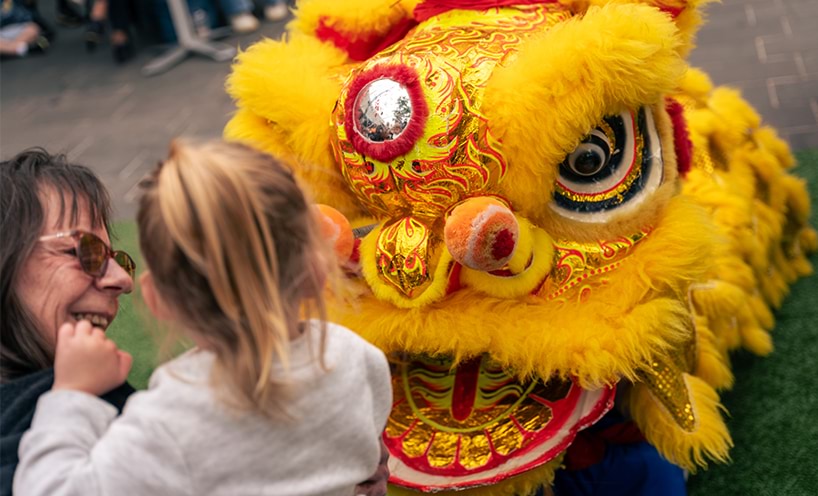
The final weeks of the year are perfect for reflection, and one of the highlights of the year for us was Children's Week 2023, a wonderful national week of celebration for our kids.
The theme for this year’s week was ‘Children have the right to relax, play and to take part in activities they enjoy’, based on Article 31 of the United Nations Convention on the Rights of the Child.
From Saturday 21 to Sunday 29 October 2023, thousands of Victorian children joined in the fun at various events hosted by early childhood services, primary schools, community organisations and councils across the state.
This year, the department sponsored more than 200 Children’s Week events, ensuring that families and children could celebrate for free.
Some highlights
Jo Williams from Angliss Neighbourhood House said their facility ran several Children’s Week activities that encouraged children to have fun, get messy and move their bodies.
About 60 children and 40 parents attended their ‘Messy Play Day’.
‘The kids loved the mud kitchen and our animal city, and bathing and putting the babies to bed was a huge hit,’ Jo said.
‘We weren't expecting the babies to take a dip in the ‘nature soup’, but you never know where messy play will lead. It was lovely to see many of our local community members getting to know some new faces.’
The centre also had 22 children and 19 adults at their ‘Move and Groove’ event.
‘Talk about high energy! We absolutely loved seeing everyone get involved and enjoy the dancing and singing. It was great for the children to be able to lead us with their own dance moves and ideas,’ Jo explained.
In Bendigo, Hargreaves Mall and Williamson Street were transformed into a fun and lively space full of free activities and entertainment for children and families as part of FunLoong Fun Day.
The day was a joyous occasion for more than 3,000 children and families, highlighted by a Welcome to Country and didgeridoo performance from Troy Firebrace and a variety of cultural performances from:
- the Central Victorian Lion and Dragon Teams
- Filipino Cultural Dance
- the Colours of India Cultural Dance
- a Karen Culture Youth Group Dance.
Find out more
For more information, refer to Children's Week.
For further enquiries, contact the department by email: childrens.week@education.vic.gov.au
New Certificate III Upskill Support Program helping to build careers
Eligible educators can access financial support to study a Diploma of Early Childhood Education and Care in 2024.
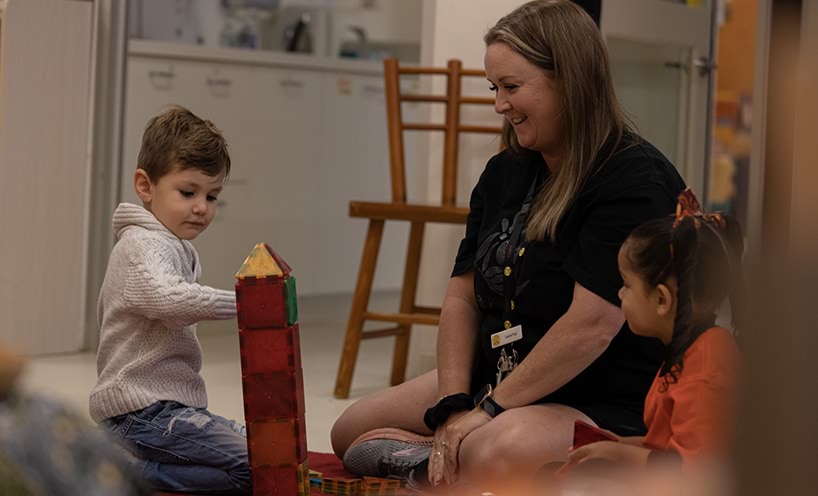
As announced in the refreshed Best Start, Best Life Workforce Strategy, the new Certificate III Upskill Support Program is open for applications for eligible educators keen to gain a diploma and continue to build their career in early childhood education.
The program offers financial support for educators who currently hold a Certificate III in Early Childhood and Care and wish to upskill to a Diploma of Early Childhood Education and Care in 2024.
The program provides educators who work at a Victorian early childhood education service delivering a funded kindergarten program with up to $7,000 (before tax) in financial support to study the diploma. This support is in addition to Free TAFE, if you choose to study your diploma at a TAFE.
People can apply for financial support through the Client Portal.
The application round for this program is now open and will close on Sunday 21 January 2024.
Building careers
The Certificate III Upskill Support Program is another initiative the department is offering to help people build their careers in early childhood education.
Becoming a diploma-qualified educator enables early childhood professionals to further extend their skills in supporting children’s learning and development.
Participants in the program can also use this as a further step towards becoming an early childhood teacher if they wish.
Find out more
For more information (including eligibility requirements), refer to Financial support to study and work in early childhood.
Building and planning grants open year-round – apply now
Applications for Building Blocks Capacity Building and Planning Grants are open year-round and assessed in batches throughout the year.
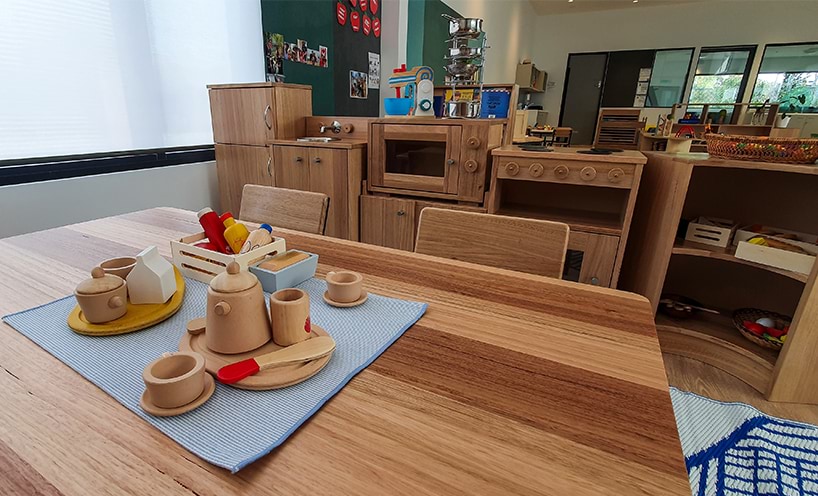
The Building Blocks Capacity and Planning Grants applications are open but they have already been funding exciting projects this year.
One of those projects was the Arnolds Creek Kindergarten, which received a Capacity Building – Expansion grant.
Thanks to the grant, Arnolds Creek Kindergarten was able to expand its existing building and add a new 33-place kindergarten room so it can offer more free kinder places to the growing community.
Categories of grants
The 4 types of Capacity Building grants are:
- Integrated Children’s Centre
- New Early Learning Facility
- Modular Kindergarten Facility
- Expansions.
Capacity Building grant funding amounts are scalable based on the number of approved kindergarten places that the project creates.
Planning grants can support organisations with planning and design costs, to develop the best path forward in expanding their existing buildings or building new ones.
These grants can be used to fund designing, developing the scope or calculating construction costs for kindergarten building projects that support the rollout of the Victorian Government’s Best Start, Best Life reforms, including Pre-Prep and Three-Year-Old Kindergarten across the state.
About Building Blocks
Since launching in 2019, Building Blocks has provided more than $190 million to plan, build and improve early childhood services in Victoria, supporting the sector to create additional kindergarten places across the state.
The Building Blocks grant program is an integral part of the Best Start, Best Life reforms, and is critical to delivering universal access to increased hours of Three and Four-Year-Old Kindergarten across Victoria over the next 10 years.
Find out more
For more information, and details on how to apply, refer to Capacity Building grants and Planning grants.
For further enquiries, contact the Victorian School Building Authority’s Early Childhood Grants team by email: building.blocks@education.vic.gov.au
New bilingual kinders for next year
Eleven new early learning services will deliver a bilingual kindergarten program from Term 1, 2024.
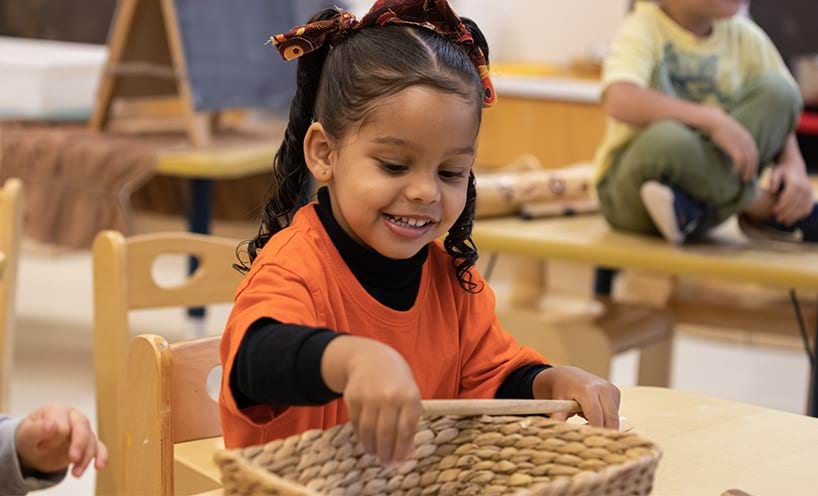
More children will have the opportunity to learn in a language other than English thanks to an increasing number of kindergarten services offering a bilingual kindergarten program from 2024.
The Victorian Government has announced an additional 11 services that will deliver a bilingual kindergarten program next year, giving an additional 400 children the opportunity to learn in another language.
Following a competitive selection process, the government has announced that these services will deliver a bilingual kindergarten program next year:
- Albanvale Community Kindergarten (Albanvale)
- Bethal Primary School Kindergarten (Meadow Heights)
- Brentwood Kindergarten (Glen Waverley)
- Dala Yoroo (Bairnsdale)
- Donvale Early Learning Centre (Donvale)
- Iramoo Kindergarten (Wyndham Vale)
- Shine Bright Helm Street Kindergarten (Kangaroo Flat)
- Springvale Service for Children (Mulgrave)
- Vista Valley Kindergarten (Bulleen)
- Vista Way Kindergarten (Wyndham Vale)
- Woodhouse Grove Kindergarten (Box Hill North).
In selecting these services, the department has given priority to services with a high proportion of children from a culturally and linguistically diverse background. The department received more than 70 expressions of interest from services across the state.
About bilingual kindergartens
Bilingual kindergarten is an initiative of the department’s Early childhood language program.
The program supports kindergartens to employ a suitably qualified language teacher to deliver part of their Four-Year-Old Kindergarten program in a language other than English.
About 800 children currently attend 10 bilingual kindergartens, where they learn in a language other than English for 12 hours of their weekly 15-hour Four-Year-Old kindergarten program.
Find out more
For more information, refer to Early Childhood Language Program.
For further enquiries, contact the department by email: ec.languages@education.vic.gov.au
Kinder Kits are coming for 2024
Please reach out to Kinder Kits supplier Bao&Co if you did not receive your 2024 Kinder Kits order confirmation.
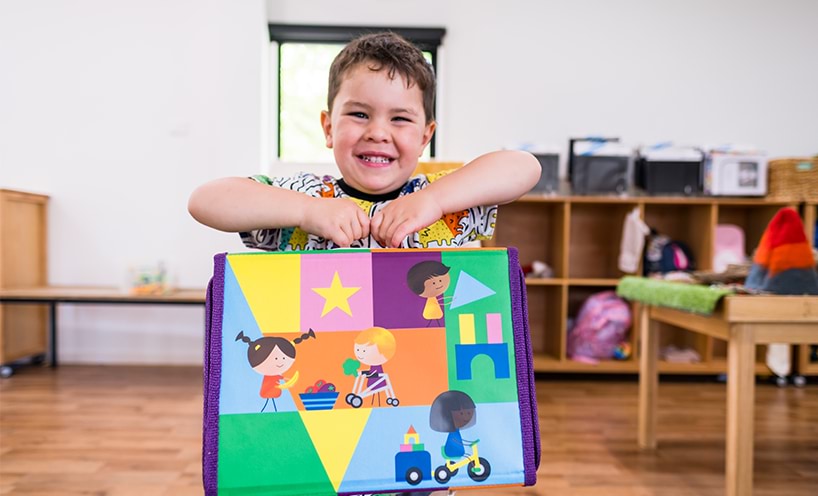
Kinder Kits are back again for 2024 and will be available for every eligible child enrolled in Three-Year-Old Kindergarten next year.
Kinder Kit supplier, Bao&Co, contacted services during October and November 2023 to confirm 2024 Kinder Kit orders. If you missed out, please contact Bao&Co for instructions on how to submit your order, by email: kinderkit@baoandco.com.au
The Kinder Kits are activity boxes filled with books, educational toys and activities made especially for 3-year-olds to enjoy at home.
The department is verifying orders against KIMS data, so please make sure your Three-Year-Old Kindergarten enrolment numbers are up to date.
Who is eligible to receive Kinder Kits?
Children starting funded Three-Year-Old Kindergarten, their first year of Early Start Kindergarten, or Access to Early Learning in 2024 in Victoria, are eligible to receive a Kinder Kit.
Three-year-olds in long day care but not a funded Three-Year-Old Kindergarten program, and 4-year-olds in funded kindergarten programs, are not eligible to receive a Kinder Kit.
It is important services only distribute Kinder Kits to eligible children because supply is limited and we want to ensure eligible children receive their Kinder Kit.
Find out more
For further enquiries, contact the department by email: kinder.kits@education.vic.gov.au
Inclusion matters
Resources are available to help services provide an inclusive environment for all children.
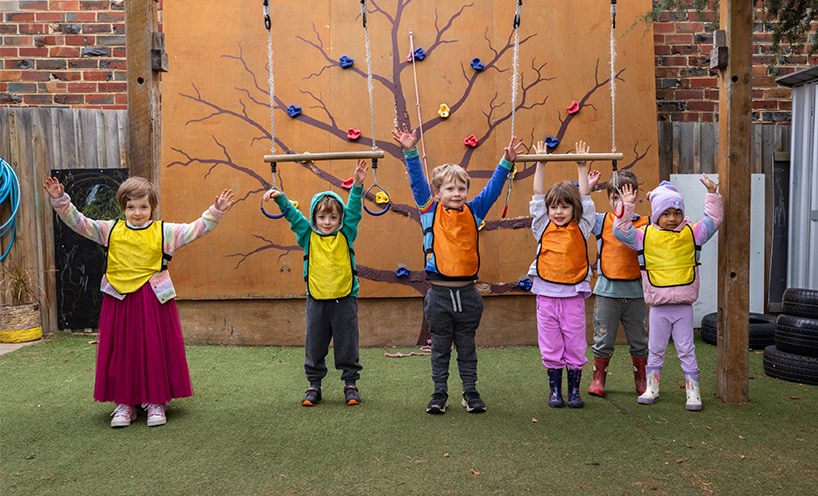
A range of resources are available to help services build their capacity to promote inclusion and meet the needs of all children in their community.
Inclusion is at the heart of the Best Start, Best Life reforms, and we encourage all early childhood education services to use the resources shared below for support with this priority.
Every child has the right to access, participate and be included in all aspects of community life, including early childhood education and care.
It is important that services explore all opportunities to include children with additional needs, including those with a disability, complex medical needs, and developmental delays.
Resources to help with inclusion
The Australian Children’s Education and Care Quality Authority website has resources to support approved providers and service staff to understand and implement their obligations under the Disability Discrimination Act 1992.
All funded services are required to follow the Priority of Access guidelines in enrolling children, including those with additional needs, and should be familiar with the guidance in the Kindergarten Funding Guide.
We encourage funded services to explore the range of supports available to build their capacity and confidence in meeting the needs of all children. This includes:
- the Pre-School Field Officer program
- Kindergarten Inclusion Support program
- KIS Specialised Equipment program
- School Readiness funding.
Please reach out to your local Early Childhood Improvement Branch (ECIB) for guidance on creating inclusive environments, accessing these supports, and managing enrolment and inclusion issues.
Your ECIB will be able to provide immediate support and guidance in situations where a child with additional needs is not attending regularly or is at risk of leaving the service.
Find out more
For more information, refer to:
For further enquiries, contact your local Early Childhood Improvement Branch.
A new kindergarten year is on the way
Access resources to help you share information with your community, ahead of another exciting year for early childhood education in Victoria.
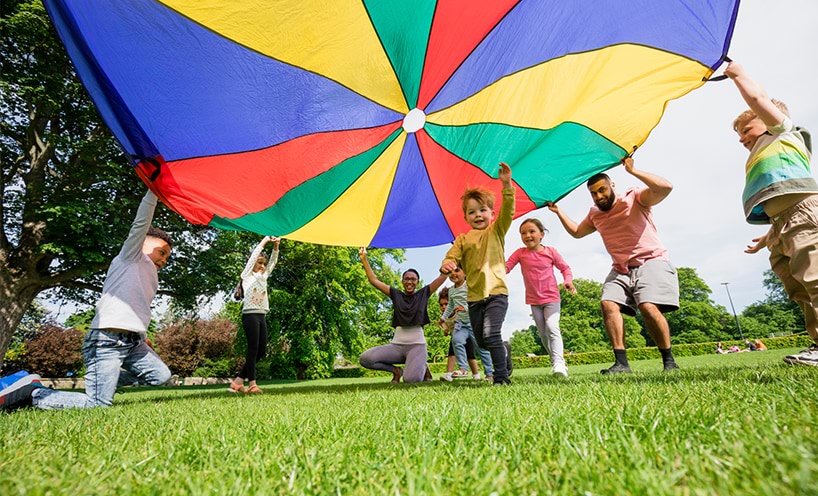
With 97% of eligible services now offering Free Kinder and some local government areas also preparing for the launch of Pre-Prep in 2025, it is an exciting time to talk about early childhood education in Victoria.
To help services to engage with families about all of this, the department has updated the Communicating about your kindergarten webpage with information about initiatives including:
- Free Kinder
- Early Start Kindergarten
- Koorie Kids Shine.
The webpage also has resources to help services celebrate the start of the year to promote enrolments and explain the benefits of early childhood education.
The kinder translations webpage also has information in 30 languages, including written, audio and visual materials.
More resources to come
In the new year, we will share a resource with even more information that you can share with the families in your communities. It will explain:
- the Best Start, Best Life reforms
- the continued roll-out of Three-Year-Old Kindergarten
- the benefits of 2 years of kindergarten
- programs available to support access and inclusion.
The resource will also include information to promote careers in early childhood, covering the incentives and scholarships available.
This will be a great way to promote your service and show families that you are committed to providing high-quality early childhood education.
We would also like to remind services and providers that there are a range of free resources they can order through the Victorian Kindergarten Resources microsite, such as the Kinder Tick signage. You can order these resources online.
Find out more
For more information, refer to: